With more than a million job listings posted online daily, you need to stand out from the crowd to get noticed by your dream employer. A standout resume is an excellent first step toward landing the job of your dreams. A practical overview presents essential information about your education, experience, and training in a concise and eye-catching document that will capture the attention of hiring managers. In addition, a well-written resume can open up new career opportunities and help you stand out from other job seekers in any field. This article is perfect for you if you’re looking for ideas on how to write a resume as a veterinary assistant. In addition, this article covers many great tips that will give you an edge when applying for jobs as a veterinary assistant.
Veterinary Assistant Resume Example

Download This Veterinary Assistant Resume as PDF
Veterinary Nurse Resume Example
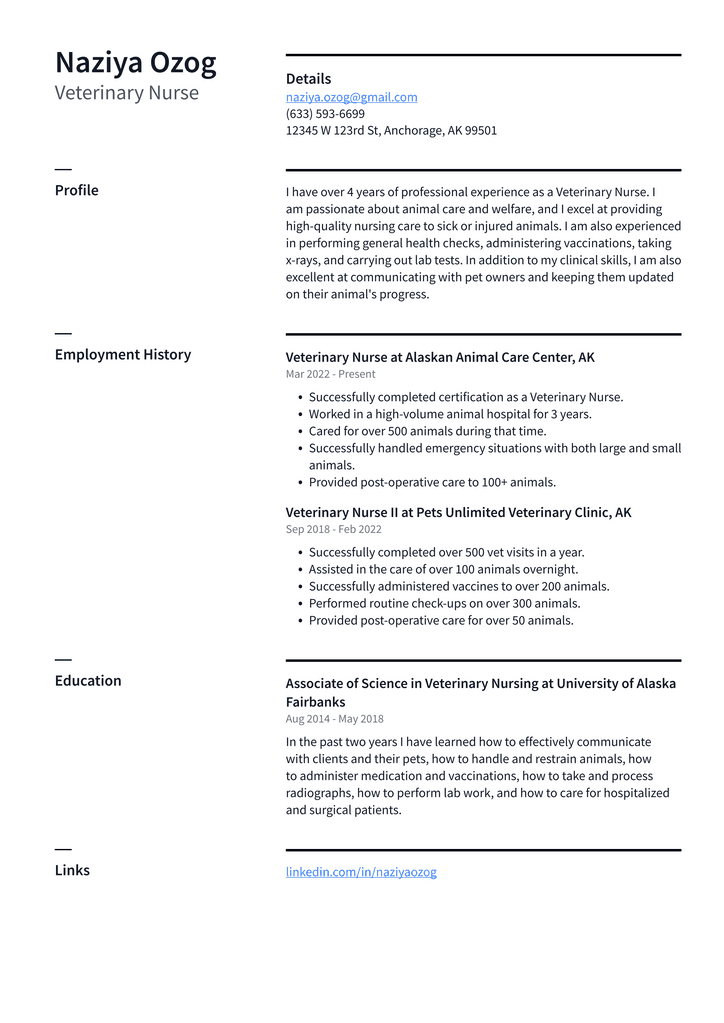
Download This Veterinary Nurse Resume as PDF
Veterinary Receptionist Resume Example
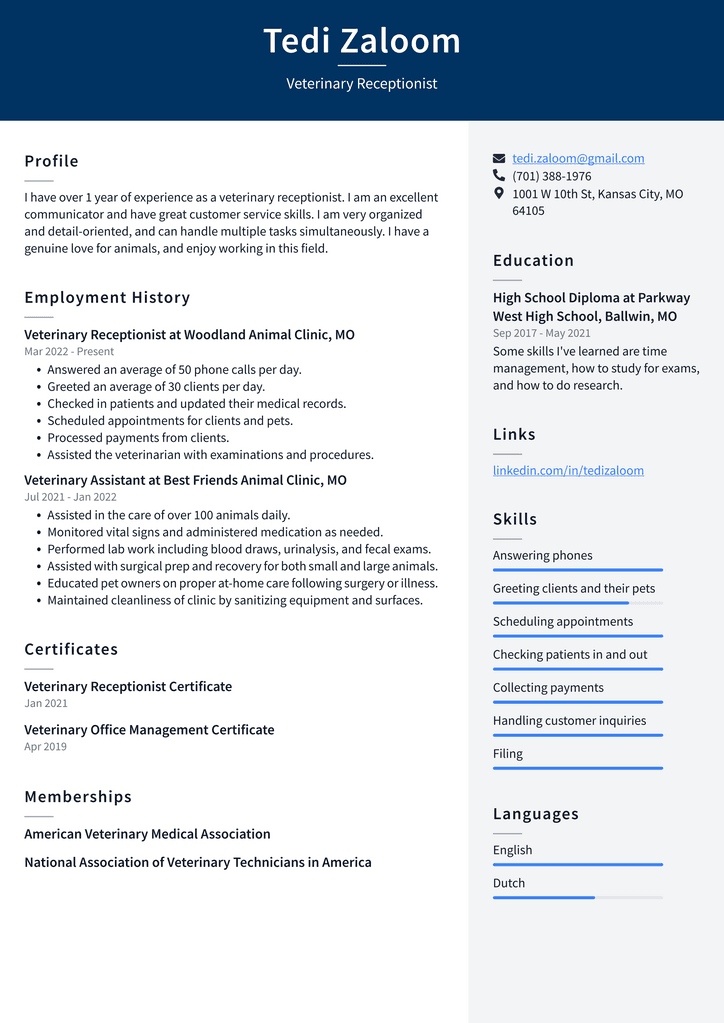
Download This Veterinary Receptionist Resume as PDF
Veterinary Technician Resume Example
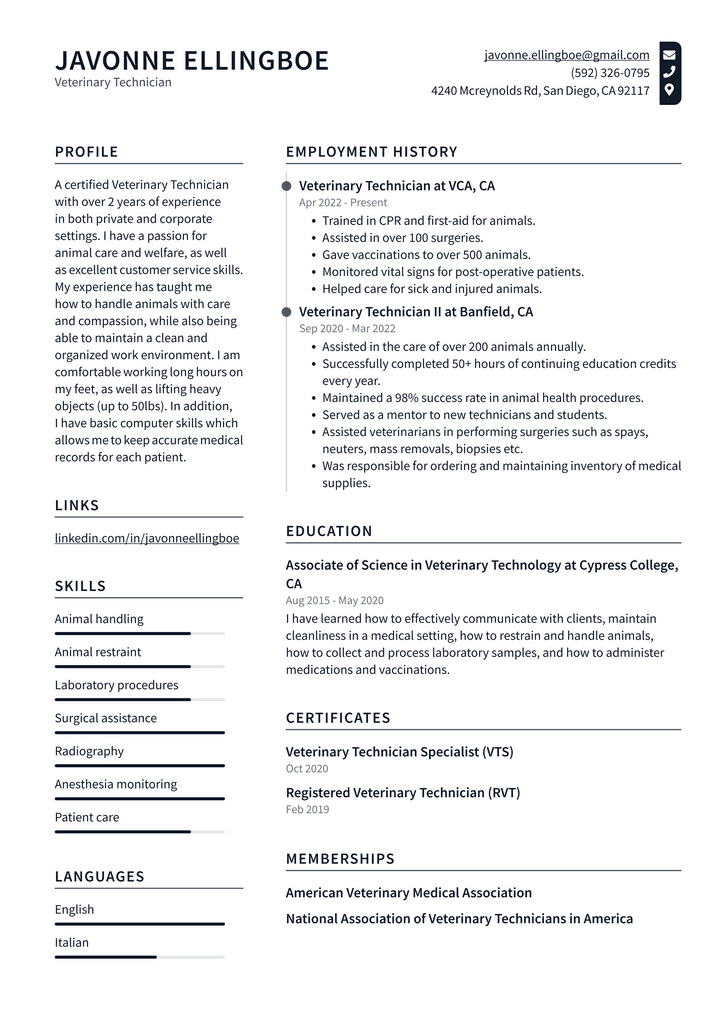
Download This Veterinary Technician Resume as PDF
Animal Caretaker Resume Example
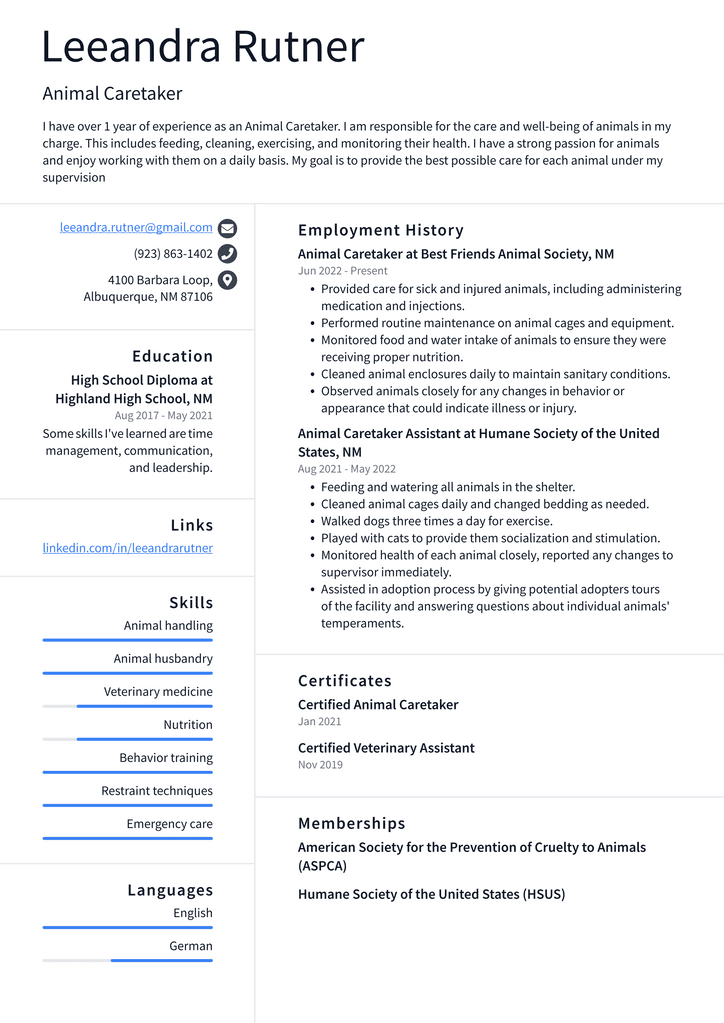
Download This Animal Caretaker Resume as PDF
Animal Shelter Worker Resume Example
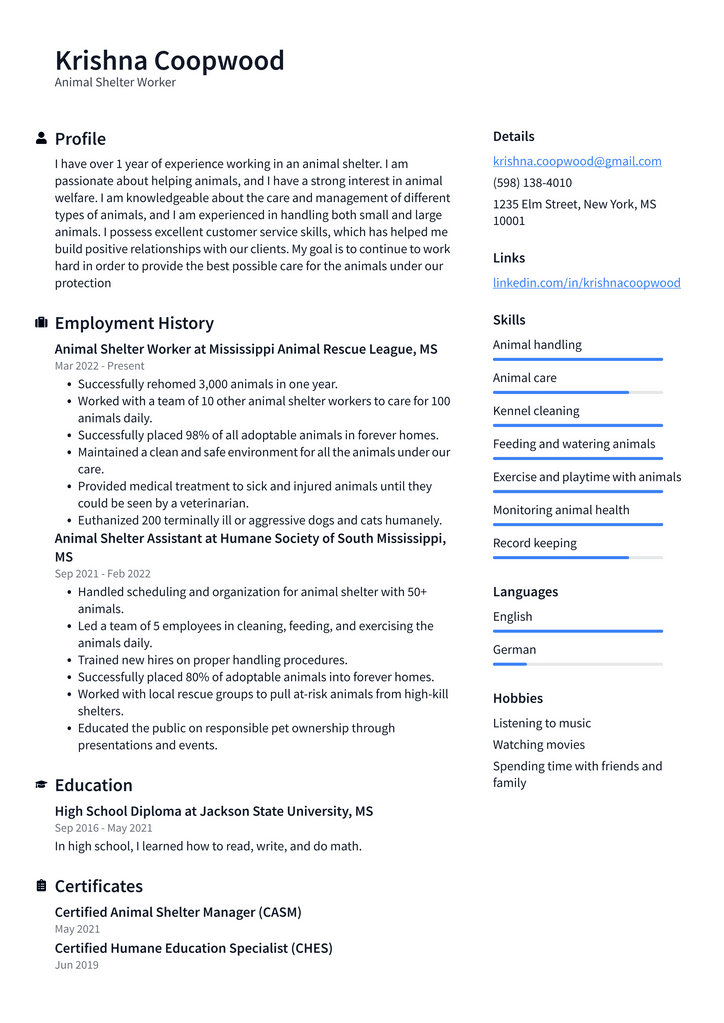
Download This Animal Shelter Worker Resume as PDF
Kennel Attendant Resume Example
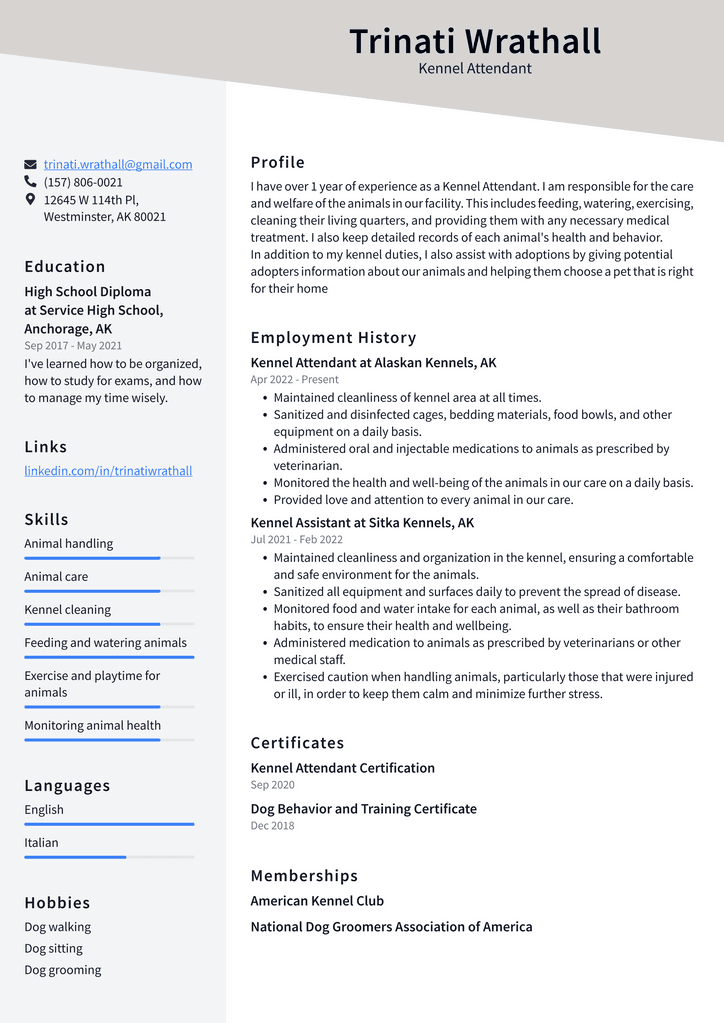
Download This Kennel Attendant Resume as PDF
Know Your Audience
Put yourself in your hiring manager’s shoes. Visualize the person reading your resume and think about how they will be impressed with your experience. As a veterinary assistant, you may be applying to many different types of positions and settings. For example, you may apply to a small-animal practice, a large-animal hospital, or a research facility specializing in animals. Your resume should be able to speak to each of these settings. If you’re applying for a job that focuses on small mammals, for example, and you have no experience working with reptiles or birds, you may want to leave off those sections of your resume. Your resume is not the place to brag about your skills or experience that you don’t have. Instead, focus on the skills and knowledge most relevant to the position and practice setting you’re applying to.
Sum up your experience
Your resume should highlight relevant experience at the top of your resume. Start by highlighting your most recent job and the skills you gained during that time. When you start the first section of your resume, you have the chance to talk about your entire career and all the good things you’ve done. Your experience is your greatest strength, and it should be front and center to gain the attention of hiring managers and recruiters. Next, begin your resume with a summary of your experience, including skills, education, and training. This summary will vary depending on the position you’re applying for, but it should always be relevant and concise. Your resume should be a quick and easy reminder for hiring managers about why you are the best person for the job.
Put your most recent position first
A common mistake many job seekers make is to put their education at the top of their resume. Your education is essential but not as important as your work experience. Work experience is what gets you hired, so it should come first. Your resume should start with your most recent job and the skills you gained while working there. Your resume should include your most recent employment first, then move on to your previous jobs, ending with your education. If you’ve had a series of short-term jobs with different companies, you can put them at the top of your resume.
Be specific with your job titles
Your job titles and descriptions are essential to a veterinary assistant resume. Your job titles and descriptions should reflect the skill set you have acquired at each position. You can use a few different methods when you write your job titles. One way is to use a verb and the name of the company where you worked. For example, “Designed training programs for medical staff at ABC Veterinary Hospital.” Another method is to use an action-oriented phrase describing your job’s responsibilities. For example, “Managed staff schedules and training programs for a 24-hour veterinary hospital.” Your job titles are important because they show the hiring manager what you did at each company.
Mention any certifications on your resume
If you have any relevant certifications, it’s good to mention them on your resume. For example, many veterinary assistant positions require an American Association of Veterinary Laboratory Technicians (AAVLT) certification. If you have this certification, it’s good to include it on your resume. Depending on the position you’re applying for, you may want to mention credentials you’ve taken but did not pass. If you’re applying for a job requiring a specific certification but failing the test, you can still include that certification on your resume. You can mention it as an “ongoing project” or something along those lines.
Add degree information if relevant to the position you’re applying for
Not every job requires a degree, but most do. If you have a degree but are in a completely different field, it’s okay to leave it off your resume if it’s not related to the job you’re applying for. However, if you have a degree related to the job you’re applying for, it’s good to include it at the end of your resume. Your degree can give hiring managers confidence in your ability. If you have a degree in something related to the job you’re applying for, it’s a good idea to include it on your resume.
Don’t forget your skills!
Your skills are essential and can help you land a job quickly. As a veterinary assistant, you’ll want to ensure you include your computer skills, communication skills, and attention to detail. You may also want to have other skills that make you stand out, such as availability on nights and weekends, lifting heavy objects, working independently, etc. As a veterinary assistant, your skills are essential. If a hiring manager sees that you have the skills they need in an employee, you’re more likely to get hired.
Conclusion
Veterinary assistants provide essential support to veterinarians in a wide range of settings. These professionals perform administrative duties and diagnostic medical laboratory procedures and are primarily responsible for the care of animals under treatment. The job outlook for veterinary assistants is excellent, with employment expected to grow at a faster-than-average rate. A well-written resume is your best bet for getting noticed by hiring managers and securing the job of your dreams. In addition, a standout resume can open up new career opportunities and help you stand out from other job seekers in any field.